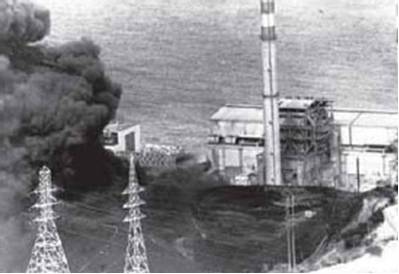
Incident Report Subject: France - Boilover Risk Forces Total to Revamp Site Near Nuclear Plant Date of Email report: Wed 20/03/2013 Report Detail:
On Dec. 19, 1982, a large crowd of power plant workers and local residents in Tacoa, Venezuela, gathered to watch a burning oil storage tank. Nearly eight hours had passed since the tank first caught fire. Had the observers better understood a devastating phenomenon known as boilover, the eruption of steam and hot oil that followed would not have claimed more than 150 lives. Total SA was ordered to modify an oil-storage site in the vicinity of a nuclear plant in northern France to avert the risk of an explosive fireball knocking out the reactor’s safety systems. The move follows in the wake of the nuclear disaster at Fukushima in Japan two years ago, which prompted France’s atomic regulator Autorite de Surete Nucleaire, or ASN, to more closely review the country’s 58 sites. Should crude stored in one of Total’s tanks catch fire, a phenomenon known as a “boilover” could occur, sending a ball of burning oil bursting into the air, IRSN, the technical adviser to ASN, said in a report on nuclear safety published on its website yesterday. The resulting fireball could lead to the malfunction of “important safety equipment” at the nuclear site, its owner Electricite de France SA has determined, according to the report. ASN has ordered EDF, the biggest power producer in France, to carry out billions of euros of measures to bolster the defences of reactors and other installations. France, which gets about 75 percent of its electricity from nuclear power -- the most in the world -- has asked EDF to add power generators and cooling sources at plants and carry out work to strengthen the country’s oldest reactors at Fessenheim against earthquakes. At the northern France site, EDF and Total “have been asked to take action to reduce the risk,” the IRSN said. The nuclear plant at Gravelines and the fuel storage site are located near Dunkirk on the English Channel. Too Close Different Fuel Additional Documentation: Article; Steps to protect nuclear plant from oil disaster IRSN_rapport_surete_du_parc_2011 [It’s in French, but good pictures - use Google translate to convert if necessary.]
|

